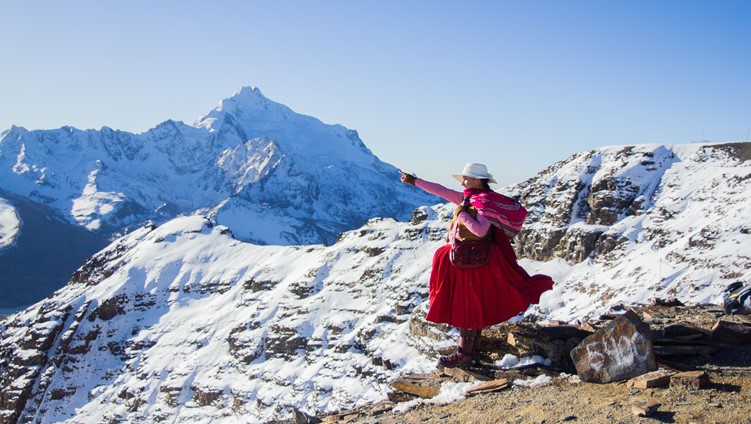One of our favourite films from the 2020 Kendal Mountain Festival was Over the Edge, which profiles the UK’s Women’s Trad Festival (WTF) and its role in fostering a strong community of women climbers.
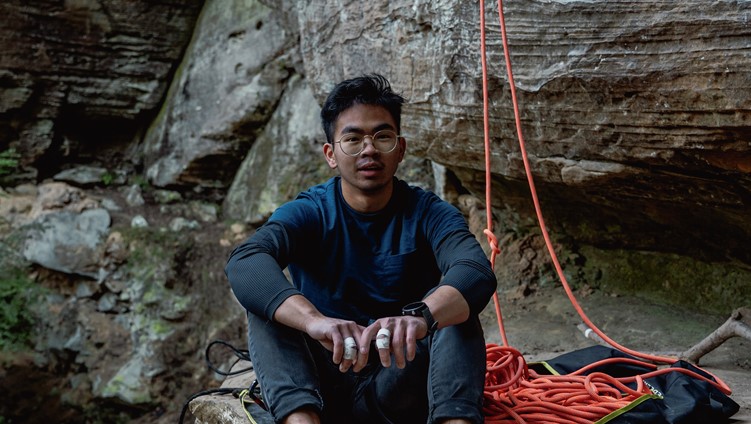
One of our favourite films from the 2020 Kendal Mountain Festival was Over the Edge, which profiles the UK’s Women’s Trad Festival (WTF) and its role in fostering a strong community of women climbers.
Celebrating pioneering people from marginalised or minority groups making headway in adventure sports will always remain vital. But watching Over the Edge, we were particularly struck by how, through the WTF, pioneering female climbers are coalescing into a diverse, powerful community beyond the sum of its parts. To celebrate this evolution, and to learn more about how the festival supports it, we sat down with climber, WTF logistics whizz and women-in-adventure researcher Hetty Key.
Hetty has an eclectic background. After transitioning from digital health to working for outdoor clothing company Rab, she says “the scientist in me” became increasingly interested in data underpinning important questions and opinions about women in the outdoors. This motivated her to found Women in Adventure, which conducts research to “provide accessible information showing how and to what extent the outdoors impacts the lives of women who participate in adventure sports.”
The initial aim was to learn more about where the dominant opinions and priorities around women and the outdoors come from. What are the barriers for women? Do women want women-only groups? Are women worried about heading outdoors by themselves or is this just naysay? “Let’s find out,” Hetty recalls saying: “Has anybody asked everybody? Are we just taking this on the assumption of people with a platform to speak, or from a more collective group of women?’”
By 2018, Hetty was juggling another job: logistics for the WTF, which was born when Ellie Fuller and Charlie Low attended the 2016 Women’s International Climbing Meet in North Wales. The meet provided a fantastic way to connect with other climbers, and left them inspired to recreate a similar space for people newer to climbing.
One of the research insights Hetty has applied to the WTF is that women are particularly keen to connect with other women climbers at two stages in their climbing journey: the start, when they are looking for a supportive learning environment; and the more advanced stage, when they are looking for other women climbing at their level.
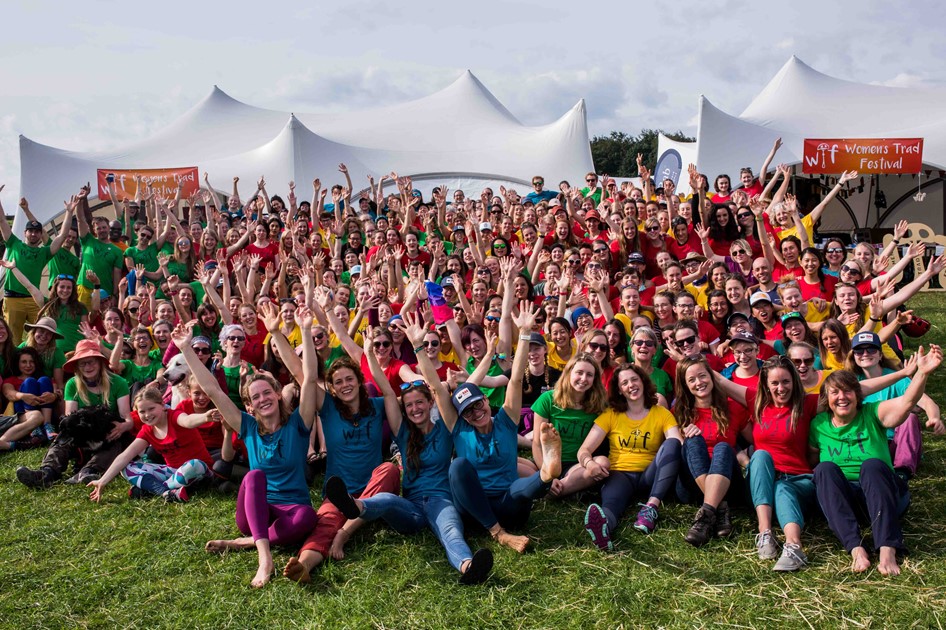
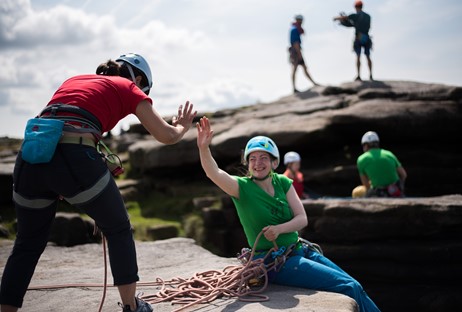
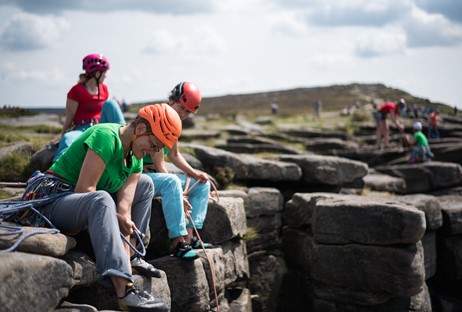
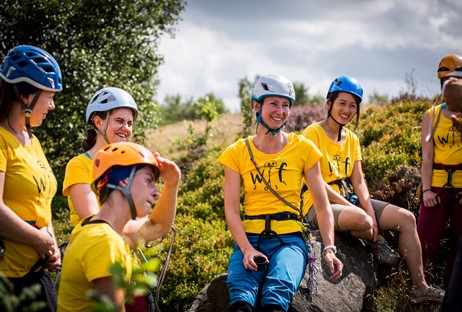
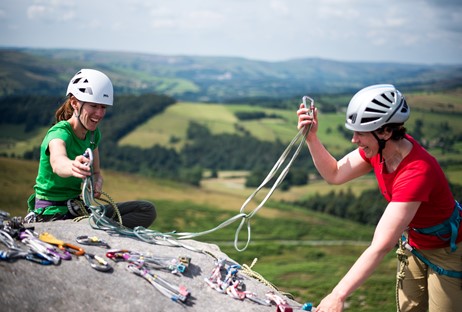
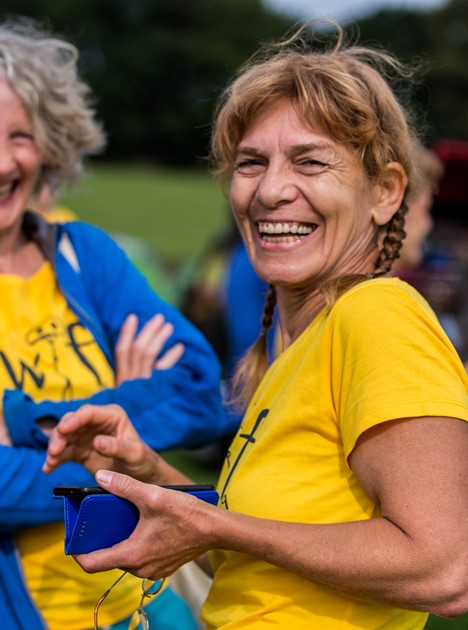
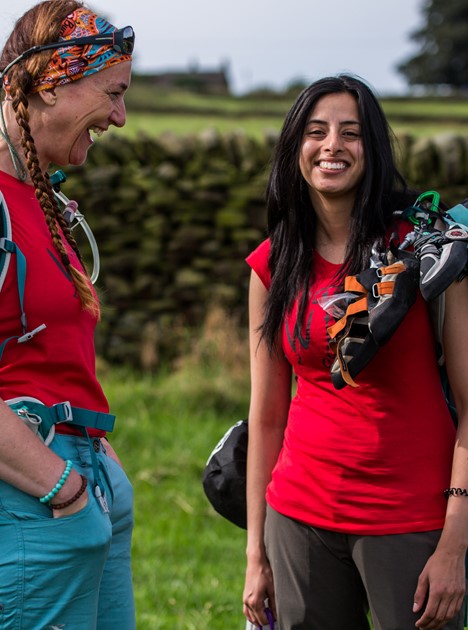
Hetty's photos from the Women's Trad Fest
The first WTF, in 2016, featured 67 attendees and a few tents. By 2019 there were over 300 attendees, with tickets selling out within seconds. The festival now boasts a new site, an expanded programme and new ticket types. Hetty’s insights into how the team has consciously built the community during these years hold value for community builders of all stripes.
The first and most fundamental step the team took was to agree on three core values around which the festival would be designed: sustainability, accessibility and mental wellbeing.
In terms of sustainability, the festival aims to reduce waste as much as possible. In 2019, 300 people over two days produced only five bin bags of non-recyclable waste. ‘Less plastic would be fantastic,’ is one of the festival mottos, and everybody brings their own mug, plate and cutlery. Food is vegetarian and vegan, and the team actively encourages ride-sharing and public transport.
Accessibility is where the WTF really shines. Providing a welcoming space for climbers is essential to the festival, especially as the increasing popularity of climbing sees the community expanding to include many people without outdoor climbing or camping experience. Climbers can arrive with nothing except “somewhere to sleep … and a high level of enthusiasm” and be provided with kit, expert guidance and everything else they might need.
The festival guards against other barriers. It recently switched to a ballot system, given rapid ticket sales, to prevent slow internet, childcare or work hours preventing people from having a chance of getting a ticket. The team runs disability awareness training for leaders, and offers a parent-and-child ticket to counter childcare barriers single parents may face.
Climbing at the festival operates on the basis of four levels of experience: beginners taking their first steps into trad climbing, climbers with enough experience to climb independently looking to grow their skills or meet other like minded people, leaders looking to develop leadership experience and mentors to advise throughout. The aim here is not hierarchy, but to ensure that everybody supports everybody, and everybody can engage in a way that helps them progress their climbing in a way that suits them. This system supports the WTF’s three aims simultaneously: supporting women new to outdoor trad climbing, developing outdoor leadership among women and building a network of women climbers.
“What the festival provides is confidence, empathy and a safe environment to stretch yourself,” says Hetty. “I don't think that is something necessarily just women need; I think it's just a really good environment to learn to trad climb.” Ultimately the festival gives “permission to go out and do this.”
To further emphasise that everybody is welcome irrespective of experience, age, size or gender (don’t be fooled by the name!), the team has also launched Climbers Like Me: a project showcasing and celebrating the diversity of the climbing community.
“We believe - and the research shows this as well - that if you can see someone like you doing something you are far more likely to be able to do it,” explains Hetty. “If you can see it you can be it. That is essentially the basis of the festival: trying to inspire role models, through showing people that what was traditionally viewed as a climber is not fixed. Age, ability, gender, background: that doesn’t matter at our festival.”
Hetty's photos from the Women's Trad Fest
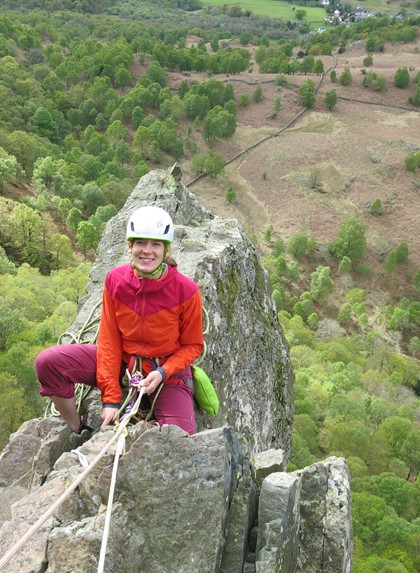
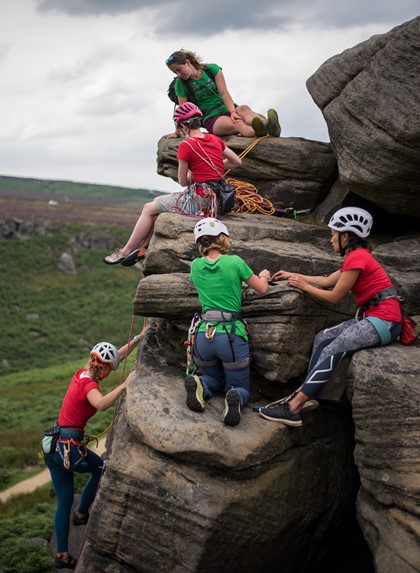
This all helps create an atmosphere in which those at the festival can climb safely and feel supported, which ties into the mental-wellbeing dimension to WTF. Women in Adventure’s 2018 survey showed mental wellbeing as an important motivation for many female climbers, emphasising the importance of a welcoming environment. The team works hard to raise awareness of the importance of mental health during the weekend, providing the space and support for climbers to share their thoughts and feelings and take steps to overcome anxiety - be that on the rock or more generally.
The impact of WTF is not limited to women. Partly this is because it is not in fact open only to women. Though “sometimes a female-focused environment can really help support women through that initial learning,” men are very welcome, and the team always tries to ensure that 10% of leaders are men, so they can see the level of “understanding and empathy” cultivated during the festival. The aim is not to create an insular community of women climbers, but a diverse community of climbers who are also part of, and helping to evolve, the broader climbing community.
This process of community building and evolution should be celebrated and supported, not just through the WTF but in other adventure and social contexts. Hetty certainly plans to continue working hard on the festival and her other endeavours - including ambitious plans for One Run, a fantastic project bringing people from around the world to exercise. We look forward to seeing these initiatives grow, and to doing more at Adventure Uncovered to celebrate emerging adventure communities through 2021.
This interview is tied to our resolution to do more to celebrate not just pioneering adventurers from marginalised communities, but the process of those adventurers coalescing into strong communities. If you know about a story showing this process in action, we’d love to hear about it, either as a tip or a pitch.
